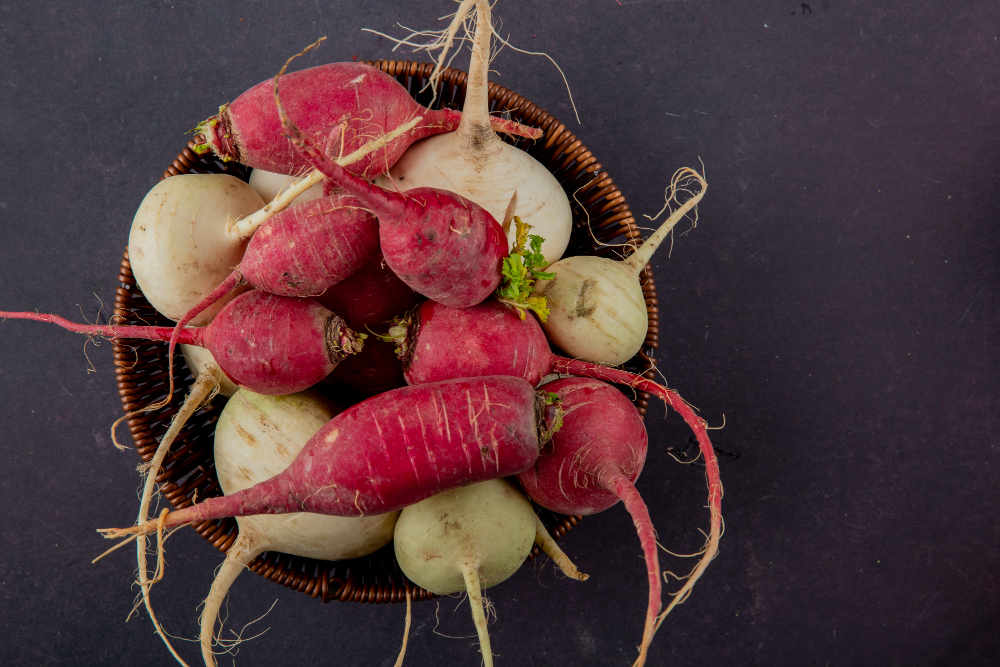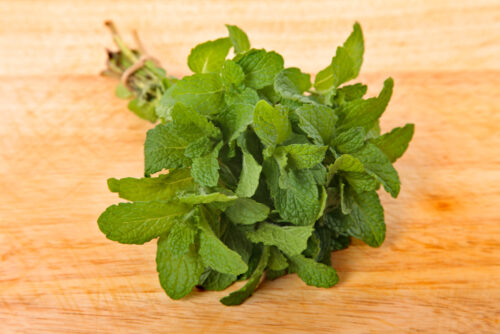Potatoes are an iconic staple in kitchens around the world. Whether mashed, roasted, fried, or baked, they’re a comforting and versatile foundation for countless traditional meals.
However, potatoes may not always be the most supportive choice for those following low-carb or ketogenic diets, managing blood sugar, or seeking to reduce refined starch intake.
The good news? There’s a whole world of satisfying, nutrient-rich alternatives that offer the familiar comfort of potatoes, without the carb load.
These vegetables deliver similar textures, flavors, and versatility while adding unique health benefits to your plate.
These replacements, from creamy mashes to crispy oven bakes, prove that going without potatoes doesn’t mean compromising on taste or satisfaction.
This guide will explore eight standout potato substitutes, each offering texture, nutritional edge, and ideal culinary applications.
Whether preparing a hearty stew, a summer salad, or a holiday side, these options bring a fresh take to every dish.
Cauliflower: The Classic, Crowd-Pleasing Favorite

Cauliflower has earned its place as the most popular potato alternative and for good reason.
Its mild, neutral flavor and tender texture make it an ideal stand-in for many potato-based recipes.
Boiled or steamed, it becomes soft and mashable, delivering that creamy consistency reminiscent of classic mashed potatoes, especially when whipped with butter, cream, or roasted garlic.
Cauliflower’s versatility doesn’t stop at mash. It works beautifully in dishes like gratins, casseroles, and shepherd’s pie.
When grated, it can be turned into low-carb hash browns or crispy cauliflower tots. Nutritionally, it offers high vitamin C and fiber levels with far fewer carbohydrates than potatoes, making it a staple for low-carb eaters.
The secret to perfect cauliflower mash lies in moisture control. Once cooked, it’s important to drain it thoroughly before blending to avoid a watery result.
When done right, cauliflower becomes a silky, satisfying canvas for comforting and creative meals alike. So, if you are looking for alternatives to potatoes for dinner, cauliflower is your answer.
Celeriac: Hearty Flavor with Nutritional Depth

Celeriac, also popularly known as celery root, might not win any beauty pageant with its knobby exterior, but peel it back and you’ll discover one of the most flavorful potato substitutes available.
With a rich, earthy taste and subtle nuttiness, celeriac brings a complexity that potatoes often lack.
Boiled and mashed, it mimics the rustic texture of chunky mashed potatoes, while roasted celeriac yields crispy edges and a golden hue.
It shines in pureed soups, adds substance to stews, and holds its shape beautifully in slow-cooked meals.
Its firm texture makes it exceptionally reliable in braises where you want your vegetables to stay intact.
Celeriac is rich in vitamin K, fiber, and antioxidants and has a lower glycemic impact than potatoes.
For those managing blood sugar or seeking anti-inflammatory foods, it’s a flavorful and functional addition to any low-carb kitchen.
Turnips: Underrated and Impressively Adaptable

Turnips are often ignored in the vegetable aisle, but they’re a light, mildly sweet, and highly adaptable alternative to potatoes.
When cooked, their slightly peppery bite softens into a buttery, subtly sweet flavor that pairs beautifully with savory seasonings.
Mashed turnips take well to classic additions like butter and herbs, while roasted turnips develop a satisfying crisp that echoes traditional oven-baked potatoes.
Pan-fried with onions and spices, they offer a deliciously light alternative to hash browns minus the carb crash.
Young, small turnips are ideal; they’re naturally sweeter and less bitter. In soups and stews, they absorb the flavor of broths and spices while contributing a clean, firm bite. Versatile and low in carbs, turnips deserve a regular spot in your rotation.
Rutabaga: Sweet, Rich, and Incredibly Filling

Rutabaga, often called swede in some parts of the world, is a cousin to the turnip with more golden flesh and a richer, sweeter taste.
Its hearty texture and natural sweetness make it an exceptional substitute for potatoes in both flavor and function.
Mashed rutabaga is smooth and velvety, with a buttery mouthfeel that benefits from accents like nutmeg or garlic.
Roasted, it caramelizes beautifully, offering golden edges and a comforting warmth that pairs perfectly with meats and hearty vegetables.
One of rutabaga’s standout traits is its durability in slow-cooked dishes. Unlike potatoes, it holds its shape over long cooking times, making it ideal for stews and braises.
It’s also lower in carbs, making it suitable for those trying to manage weight or blood sugar while indulging in comfort food classics.
Kohlrabi: Crisp, Mild, and Surprisingly Versatile

Kohlrabi may not be the first vegetable that comes to mind when replacing potatoes, but its subtle sweetness and gentle flavor make it a standout choice.
When raw, kohlrabi has a crisp texture similar to a radish, but when cooked, it softens into a mild, potato-like consistency.
Mashed kohlrabi is light and fluffy. When roasted or pan-fried, it achieves a golden, tender texture with caramelized edges.
Its firm structure allows it to hold up well in soups, curries, and stir-fries, absorbing bold flavors without falling apart.
With only about 6 grams of carbohydrates per 100 grams, kohlrabi fits neatly into most low-carb eating plans.
Its adaptability and mild flavor make it an effective partner for strong seasonings, from garlic and paprika to fresh herbs.
Daikon Radish: Mild, Moist, and Perfect for Simmered Dishes

Daikon radish is a staple in Asian cuisines, but its potential as a potato alternative is often underappreciated.
Unlike smaller radishes with a sharp bite, daikon is large, mild, and juicy. When cooked, it transforms dramatically, becoming soft, mellow, and subtly starchy.
It’s particularly effective in soups and stews, where its high water content allows it to soak up broths and seasonings, adding volume and texture without the carbs.
When grated and pan-fried, daikon can mimic shredded hash browns, offering a light and satisfying breakfast option.
Daikon is low in calories and rich in digestive enzymes. It is gentle and soothing on the stomach and supports gut health.
Daikon is an underrated gem for those seeking a clean, low-carb substitute for potatoes in simmered or stewed dishes.
Jicama: Crisp and Refreshing for Cold Dishes

Jicama doesn’t behave like a potato when cooked, but it makes a refreshing and crunchy stand-in in raw preparations, especially cold salads.
It’s naturally sweet, with a juicy texture that mimics the bite of a chilled potato cube, making it ideal for mock potato salads.
Diced and tossed with creamy dressings, mustard ( if you are short on mustard, you can use these substitutes), or herbs, jicama maintains its crunch and doesn’t turn mushy even after being refrigerated.
It’s hydrating, low in carbs, and high in fiber, making it especially appealing in light or summery meals.
While it’s not meant for mashing or roasting, jicama can be sliced for raw snacks or baked into low-carb chips. Its crisp, clean flavor makes it a perfect companion to bold dressings and fresh herbs.
Parsnips: Comforting, Sweet, and Nutrient-Dense

Parsnips are the sweet and creamy cousin to carrots and offer a comforting, starchy feel that many crave in colder months.
Although slightly higher in carbs than other substitutes, parsnips are far more nutrient-dense than potatoes and provide a unique depth of flavor.
When cooked, parsnips develop a rich sweetness and tender texture that blends beautifully into mashes, purees, and soups.
Roasted, they turn golden and crisp, pairing wonderfully with roasted meats and savory root vegetables.
Parsnips are particularly good for those who want the heartiness of a traditional side dish without the blood sugar spikes that come with white potatoes. High fiber, folate, and vitamin C levels easily balance flavor and nutrition.
Final Thoughts: More Than Just a Substitute

Stepping away from potatoes doesn’t mean giving up comfort food; it means embracing a broader range of vegetables that offer exciting new flavors and health benefits.
Each potato alternative brings its strengths to the table, whether cauliflower’s lightness, celeriac’s complexity, or jicama’s refreshing crunch.
The right choice depends on your dish and dietary goals. Do you need a creamy mash? Cauliflower or rutabaga delivers.
Looking for a hearty stew addition? Turnips or daikon offer structure and substance. Craving a cold salad with a bite? Jicama shines.
The key is to experiment and explore these ingredients not just as replacements, but as upgrades.
The next time a recipe calls for potatoes, take it as an opportunity to try something new. These substitutes won’t just fill the gap; they may become your new favorites.











